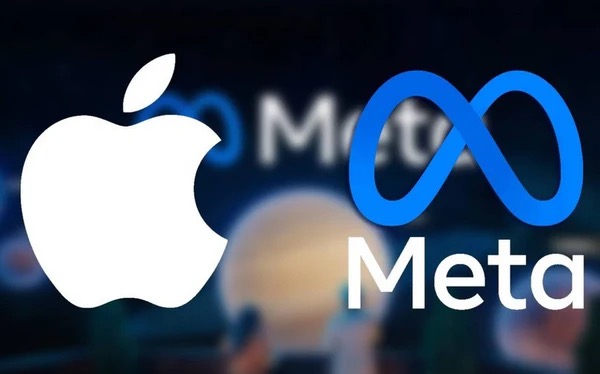In a groundbreaking move that sets a precedent for global tech regulation, the European Union has fined Apple and Meta a combined €700 million for violating the Digital Markets Act (DMA). Apple was hit with a €500 million fine, while Meta, parent company of Facebook and Instagram, faces a €200 million penalty.
This marks the first major enforcement action under the DMA, which came into force to curb the dominance of digital “gatekeepers” and to promote fair competition across the European digital landscape. The penalties underscore the EU’s commitment to reigning in Big Tech’s market power and safeguarding user rights in an increasingly data-driven economy.
Apple’s €500 Million Fine: App Store Monopoly Practices
The bulk of the penalty falls on Apple, which the European Commission found guilty of restricting app developers from directing users to cheaper alternatives outside the App Store. This practice violated DMA rules requiring gatekeepers to allow fair access and prevent anti-competitive behavior.
According to the EU ruling:
“Apple prevented app developers from informing users about alternative payment options, which unfairly limited consumer choice and suppressed competition.”
– European Commission statement
Apple’s response has been defiant. The company claims the rules undermine user privacy and security, and vowed to appeal the decision, stating the ruling unfairly targets its business model.
Explore more details on European Commission’s official site.
Meta’s €200 Million Fine: ‘Consent or Pay’ Model Deemed Coercive
Meta’s fine stems from its controversial “Consent or Pay” model introduced in the EU in 2023. Under this system, users had to either consent to the use of personal data for advertising or pay a monthly fee to use the platform ad-free.
The European Commission found that this approach violates the principle of informed consent, as users were not offered a true alternative that respected privacy. By conditioning access on consent or payment, Meta failed to comply with the GDPR-aligned provisions within the DMA.
In its defense, Meta argued the model gave users “flexibility” and was transparent about data use. The company insists it intends to appeal the fine, framing it as a politically motivated move targeting U.S. tech firms.
What Is the Digital Markets Act (DMA)?
The Digital Markets Act, part of the EU’s broader Digital Services Package, came into effect to curb the dominance of large digital platforms dubbed “gatekeepers.”
Key DMA mandates include:
- Prohibiting self-preferencing in app stores or search rankings
- Forbidding bundling services in a way that suppresses competition
- Requiring fair data sharing between platforms and business users
- Ensuring users can uninstall pre-installed apps
The DMA is enforced by the European Commission, which can issue fines of up to 10% of global turnover for non-compliance—with even steeper penalties for repeat offenses.
More info available at the European Union’s Digital Strategy Portal.
Reactions from Industry and Watchdogs
The fines have sparked a global debate about tech governance, sovereignty, and user rights:
- Pro-regulation groups praised the EU for holding powerful corporations accountable.
- Privacy advocates welcomed the rejection of Meta’s data-for-access model.
- U.S. business lobbies, however, warned the EU risks becoming hostile to innovation.
The European Commission emphasized that the decisions were “strictly legal,” not geopolitical, and that all companies—regardless of origin—must comply with European law if they wish to operate in the Single Market.
What’s Next for Apple and Meta?
With both companies pledging to appeal, the legal battles may stretch for years. However, unless appeals suspend enforcement, both firms must comply within two months, or face further penalties of up to 20% of global revenue.
This also opens the door for:
- More enforcement actions against Google, Amazon, and TikTok
- Potential lawsuits from developers and consumers over unfair practices
- Increased calls in the U.S. and Asia to adopt similar antitrust frameworks
Broader Implications for the Tech Industry
This landmark case signals that:
- Digital monopolies are under real threat
- The EU is leading the charge globally on digital regulation
- Future business models must align with user-centric principles, including transparency, fairness, and consent
The DMA will likely become a global template, as regions like Australia, India, and Canada consider tougher rules on digital gatekeepers.
Conclusion
The €700 million fines against Apple and Meta are more than just penalties—they’re a clear warning shot to Big Tech: the era of self-regulated digital empires is over. As regulators crack down on anti-competitive behavior, the landscape of digital power is shifting.
Whether this leads to better user rights and more competitive markets—or increased regulatory conflict—remains to be seen. What’s certain is that the EU has just redrawn the rules of engagement in the global digital economy.
FAQs
Q1: Why did the EU fine Apple and Meta?
A1: Apple was fined for restricting developer communication about cheaper payment options. Meta was fined for its “Consent or Pay” model that violated informed consent laws.
Q2: What is the Digital Markets Act (DMA)?
A2: The DMA is an EU regulation that targets large tech platforms to prevent anti-competitive behavior and ensure fair digital markets.
Q3: Will Apple and Meta appeal the fines?
A3: Yes, both companies announced plans to appeal, arguing the decisions are unfair and may harm innovation.
Q4: What are the penalties under the DMA?
A4: The EU can fine companies up to 10% of global turnover, with increased fines for repeat violations.
Q5: Could more companies be fined under the DMA?
A5: Yes. Google, Amazon, TikTok, and others are also under scrutiny and could face similar action.



